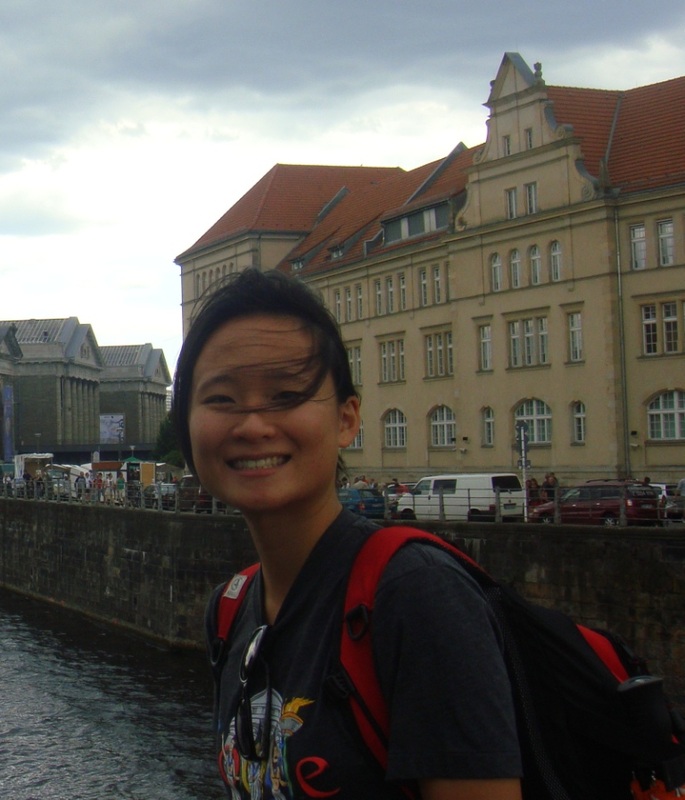Choosing engineering as my concentration is the first step in figuring out why there are so many e’s in an engineer. My goals for now are to explore the science and engineering field until I find an area that is just right for me. All I know is that I love the field of science and technology and I want to be a part of this community. As an engineering student, it’s difficult to study abroad during the semester without sacrificing course credits. Therefore, I want to make the most of my summers by traveling as much as I can, immersing myself in different cultures and learning science through a different lens. [Lucky for us Scientistas, there are plenty of engineering opportunities abroad! Last summer, I worked as a technology analyst at the Industrial Technology Research Institute (ITRI) in Taiwan, where I studied the profitability of mobile apps and conducted research on future technologies.
This summer, I packed my belongings and headed for Duisburg, Germany to conduct research at the University of Duisburg-Essen. Duisburg isn’t as well known as Berlin or Munich – I had no idea where Duisburg was until I googled it – but it has had a rich history and is definitely a city you should add to your mental geography map. I’ve only been here for several weeks, but the environment of Duisburg is fascinating. As the world’s largest inland harbor, Duisburg’s cityscape is lined with quiet cargo shipyards and industrial factories. Landschaftpark, a disused ironworks facility turned park, is the perfect example of Duisburg culture. This industrial beauty is where I will call home for the next two months. At the University of Duisburg-Essen, I am working in the physics department, in the Lorke Research Group, characterizing the photoluminescence of nanoparticles. Nanoparticles refer to particles of materials with dimensions less than 100 nanometers (1 x 10^-7 meters). On this scale, normal macroscale properties of materials no longer hold, and materials begin to exhibit interesting new properties. As a result nanoscience has become the center of research, and there is still a lot to learn about the nanoworld. This summer, I will be studying the properties of gold nanoparticles and how they react to light. Although, it’s safe to say that a block of gold won’t glow when put under light, small nanoparticles of gold actually do – albeit, not brightly – but they definitely glow. I hope to learn techniques in the lab, to find out more about the different fields of research with nanoparticles, and to travel throughout Europe on weekends. Tune in to my blog every week to join me in Germany this summer!
0 Comments
Your comment will be posted after it is approved.
Leave a Reply. |
The Lab JournalWelcome to the summer internship series of 2012! Follow 9 Scientista bloggers through their summer internships to catch a glimpse of what it is like to be a scientista^TM. By Title- India Presents: A "New World Symphony"
- Through The Lens: The Intricacies Of Diabetes - Do Nanoparticles Glow? - Using Unusual Animals to Study Human Disease - Using the Hubble Telescope - You Think What You Eat - Experimenting With the Life of a Scientist(a) - 18.085: My Summer at MIT - Science Heals: A Summer of Global Health Research By BloggerRabeea Ahmed
Riana Balahadia Shaira Bhanji Nzuekoh Nchinda Amy Beth Prager Natalie Punt Juliet Snyder Pin-Wen Wang Stephanie Wang Archives |
The Scientista Foundation, Inc. All Rights Reserved © 2011-2021 | Based in NY | [email protected]
The Network for Pre-Professional Women in Science and Engineering
The Scientista Foundation is a registered 501(c)(3) -- Donate!
The Network for Pre-Professional Women in Science and Engineering
The Scientista Foundation is a registered 501(c)(3) -- Donate!


 RSS Feed
RSS Feed